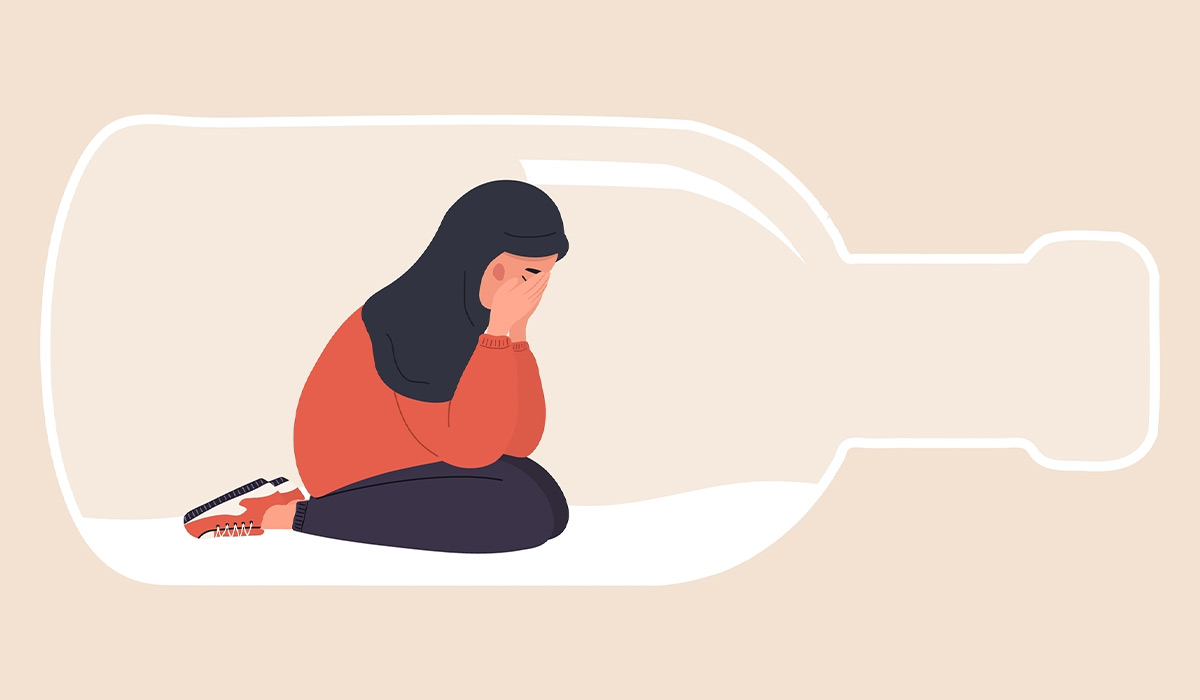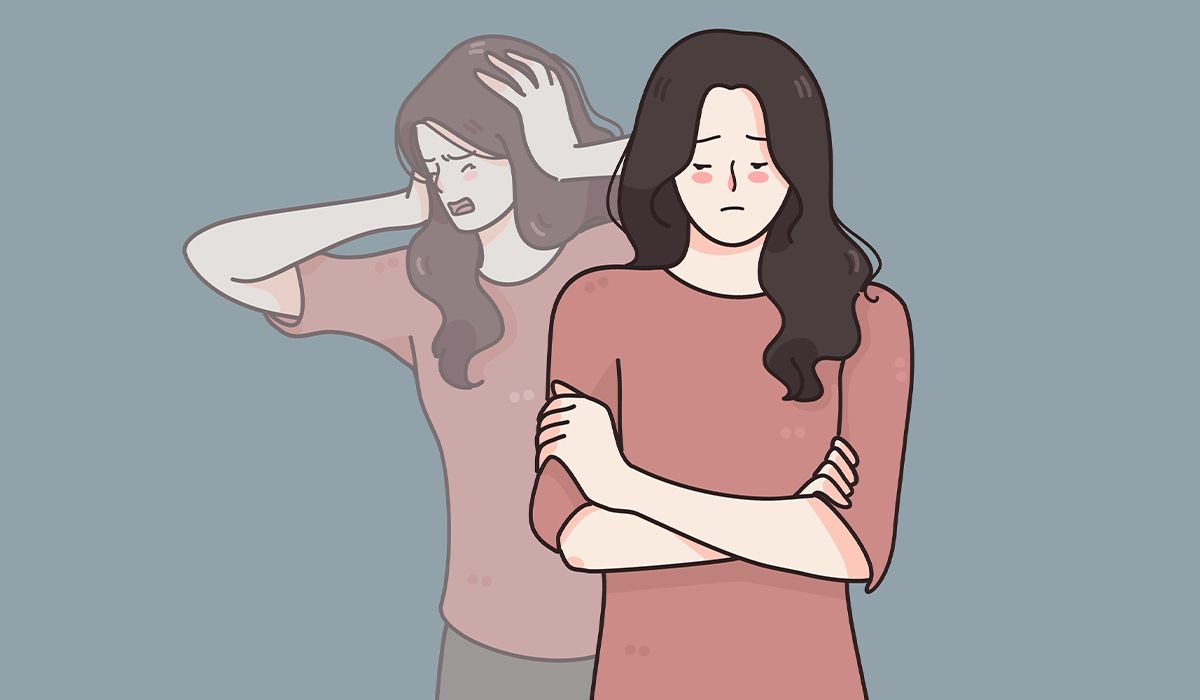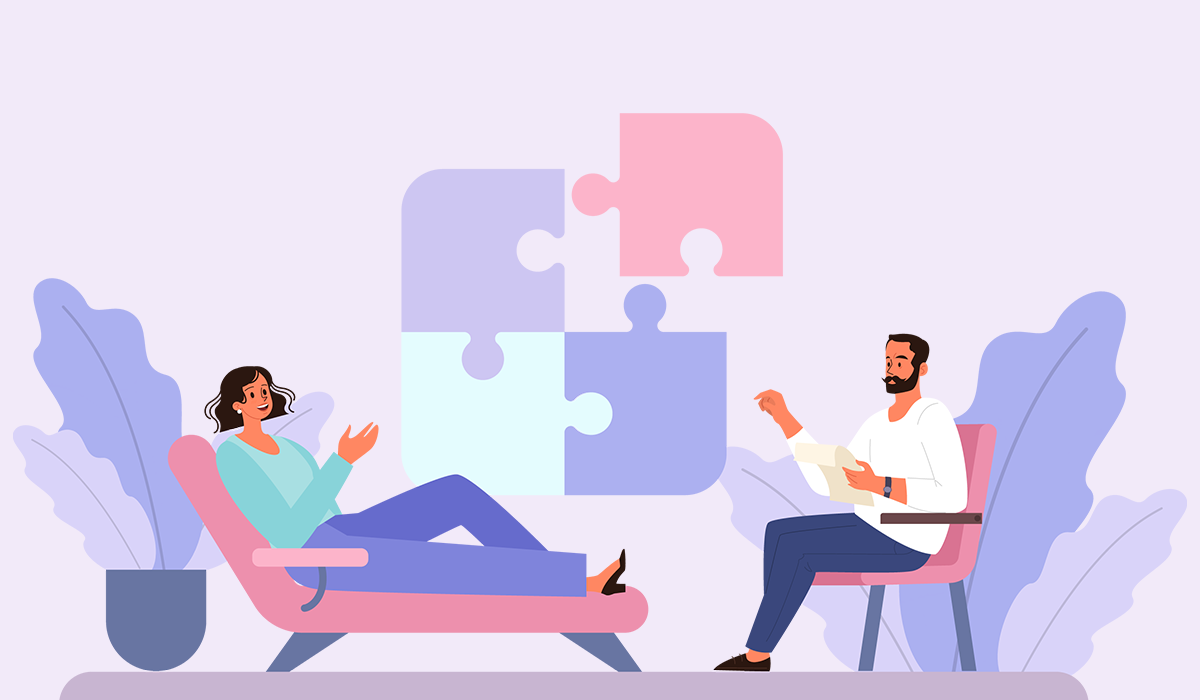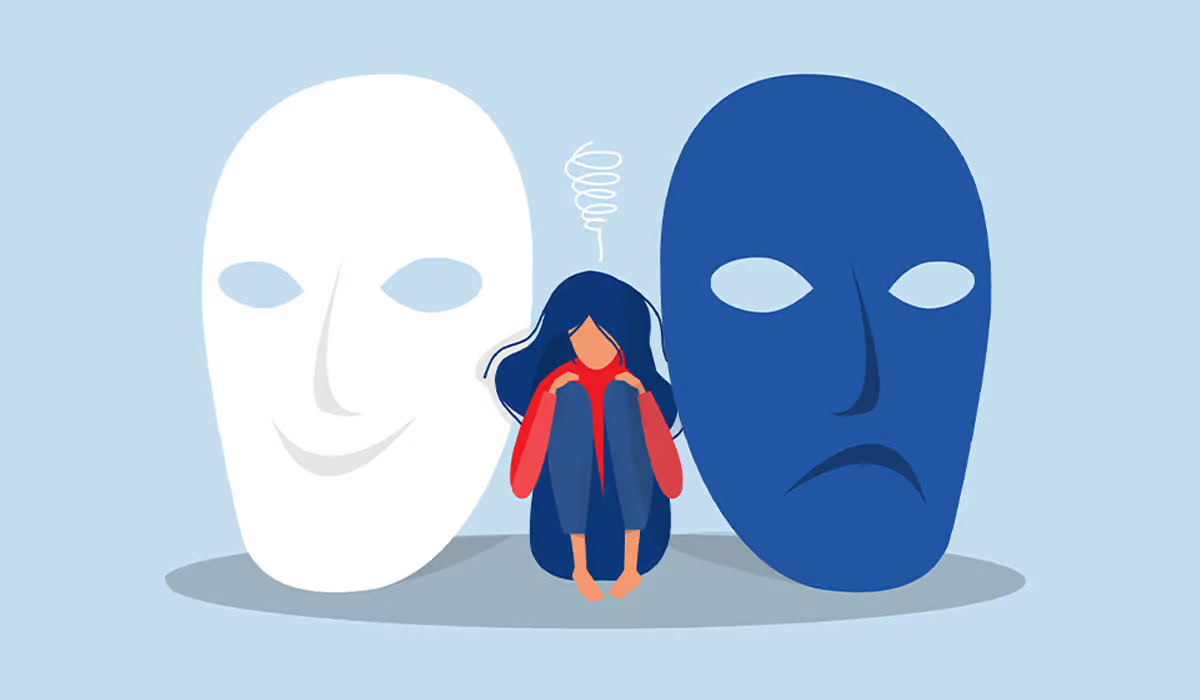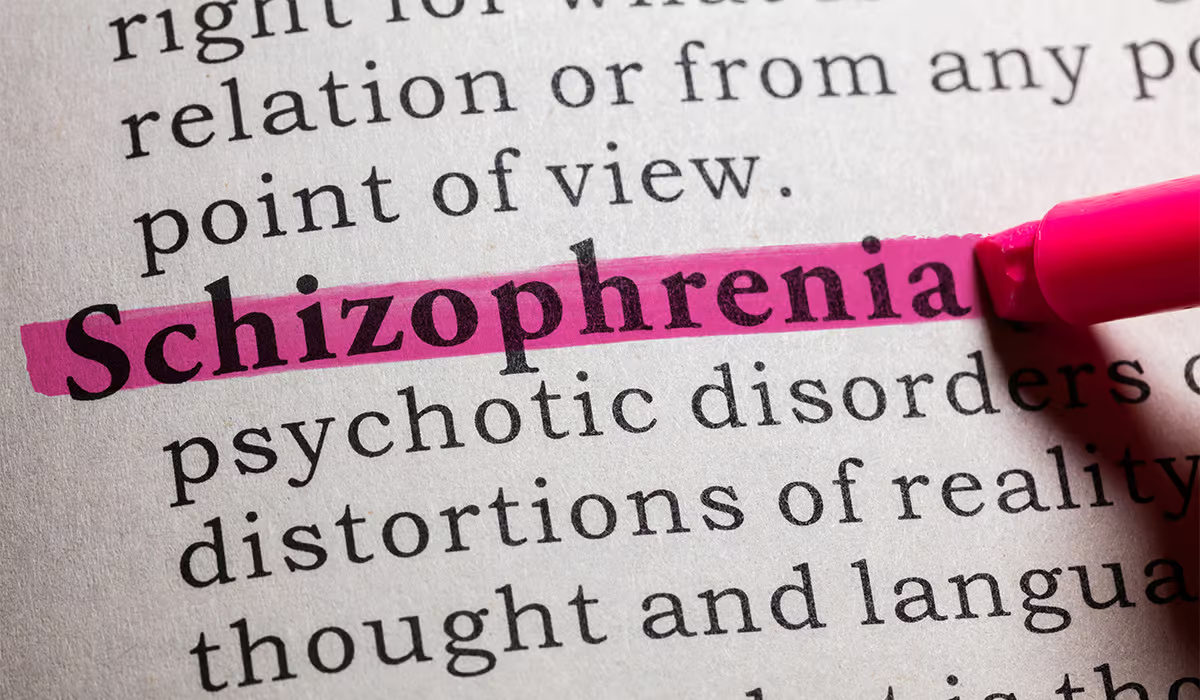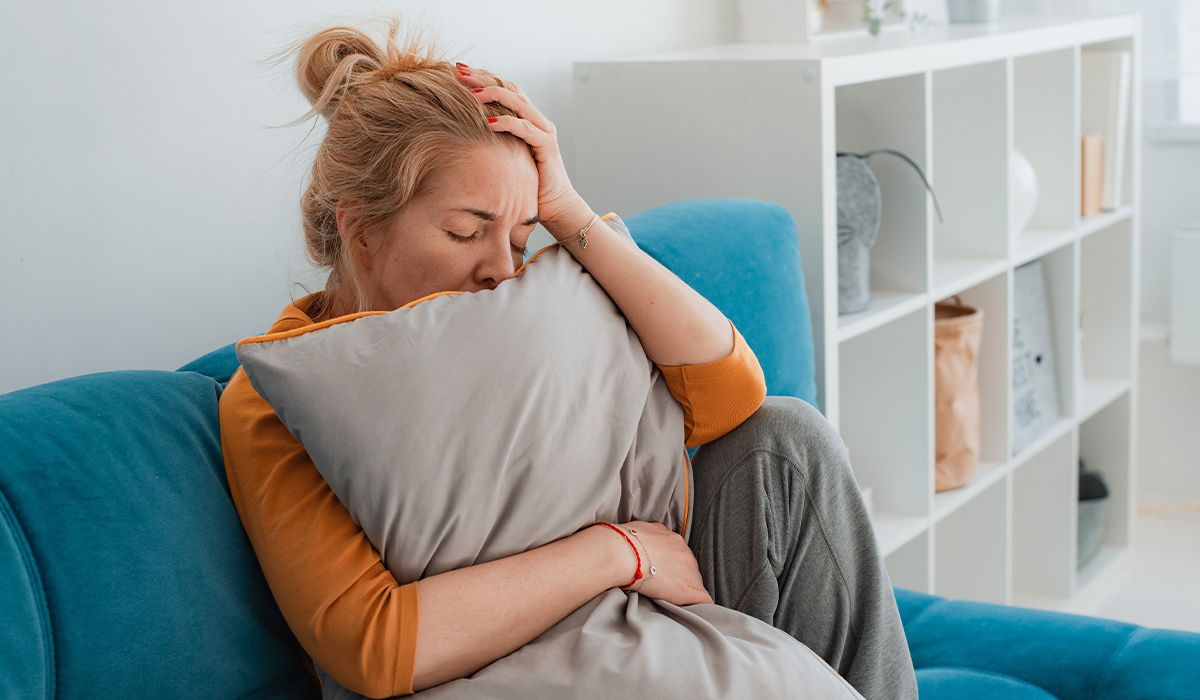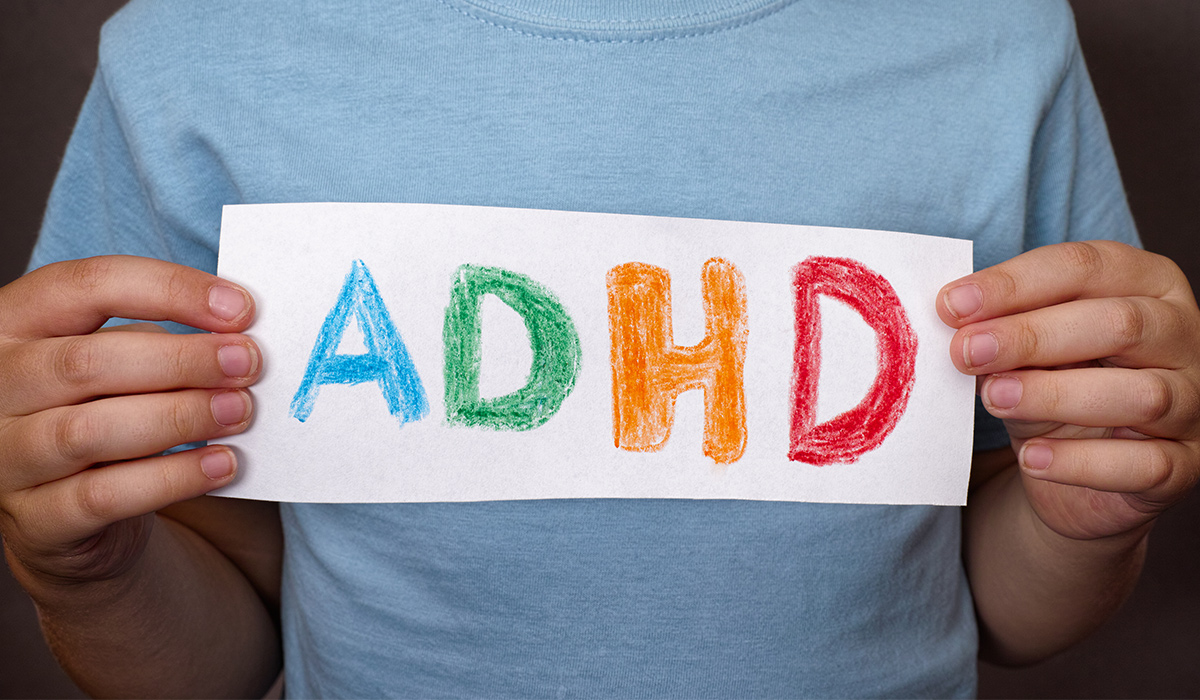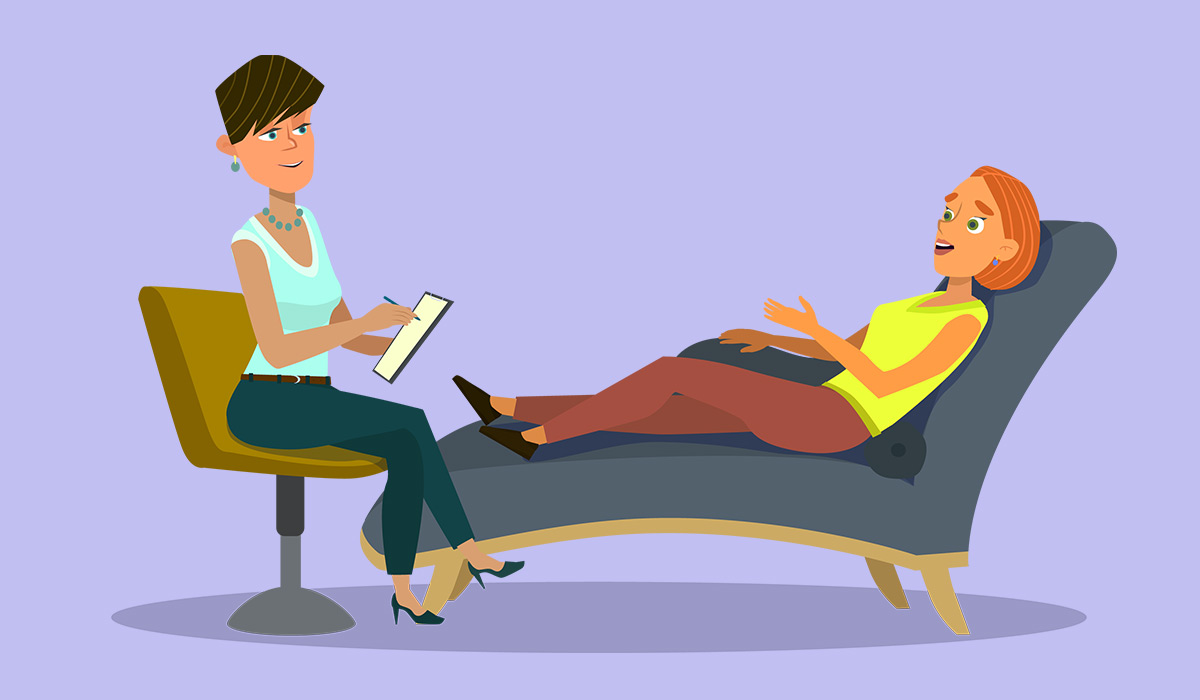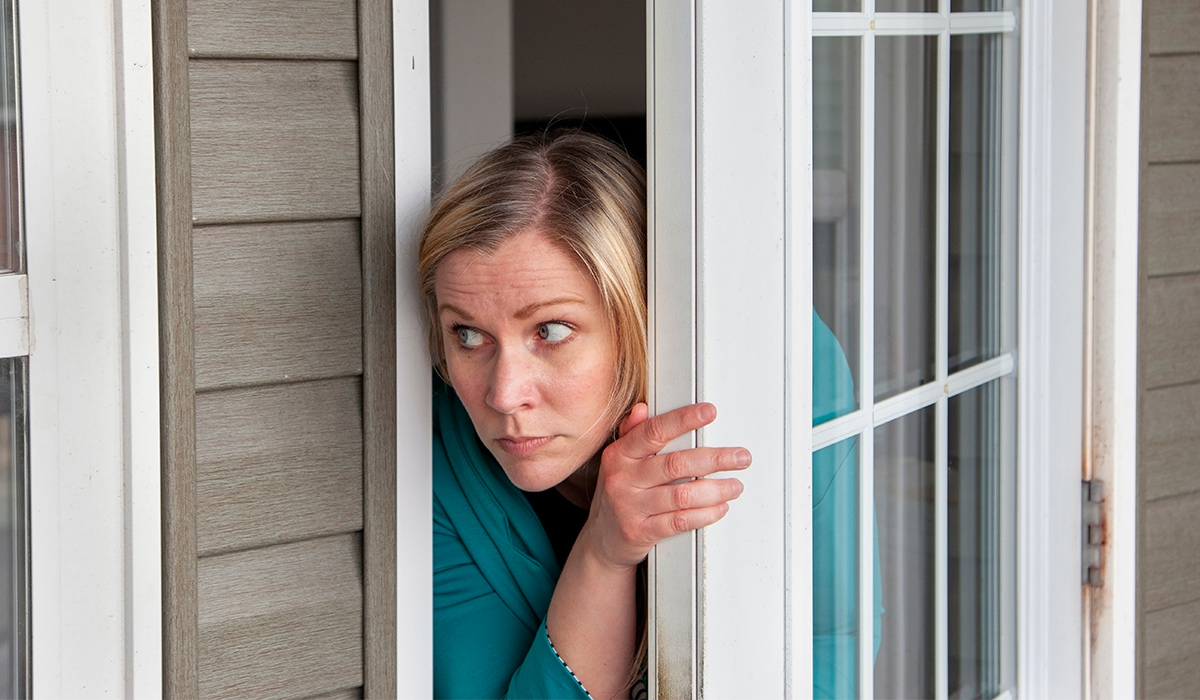Anxiety disorders are a group of mental disorders characterized by significant and uncontrollable feelings of stress and dread – to the extent that social, professional, and personal functions are visibly impaired. Anxiety can also cause physical and cognitive symptoms.
Anxiety disorders often occur with depression, personality disorders, eating disorders, or addictions.
Symptoms of generalized anxiety disorder
It is characterized by persistent worry and anxiety that are out of proportion to the severity of the situation and circumstances that give rise to them. People affected by this disorder worry in advance, often about numerous but relatively trivial matters, thinking about the future. They are in a state of constant vigilance as if something unfortunate is about to happen. This state of alertness is associated with a tiring, uncomfortable feeling of tension and an inability to relax.
Persistent worrying and strong anxiety is accompanied by numerous somatic symptoms. These are primarily:
- the subjective feeling of a fast heartbeat,
- hands shaking,
- muscle tremors,
- excessive sweating or dry mouth,
- cold chills alternating with hot flashes,
- the feeling of suffocation, choking, or having something in the throat,
- nausea,
- dizziness and the feeling like you are going to faint,
- constant muscle tension and muscle pain.
Even though a person with a generalized anxiety disorderis aware of their excessive worrying, they feel unable to control their fears and experience acute discomfort. As a result, their functioning in many spheres of life can be hindered.
In addition to physical symptoms, generalized anxiety disorder also manifests itself in:
- feelings of restlessness,
- difficulty resting,
- fear of sudden death,
- irritability,
- difficulty sleeping,
- lack of concentration.
Some people may also experience the unreality of the world around them and themselves (derealization/depersonalization).
The symptoms that constitute the diagnostic criterion for generalized anxiety disorder are primarily intense fear and worry that persist for at least six months. Proper diagnosis of generalized anxiety disorder also requires determining whether the anxiety is accompanied by constant irritability, irritability, fatigue, muscle tension, and sleep disturbances. The physician should also determine whether generalized anxiety disorder is not the result of, or is not accompanied by other mental illnesses or disorders.
Because of somatic symptoms, many patients first turn for help to internists, cardiologists, and gastroenterologists. Usually, however, the tests for which patients are referred by doctors of these specialties do not show any abnormalities. The patient should be referred to a psychiatrist at the right moment to save them from suffering from generalized anxiety disorder from many years of fruitless diagnostics.
Feeling tension similar to generalized anxiety disorder may occur in internal diseases. Conditions associated with anxietyinclude:
- cardiovascular diseases,
- hyperthyroidism,
- hypoglycemia,
- porphyria,
- respiratory diseases,
- diseases of the neurological system, such as labyrinthitis.
Therefore, in the case of a disorder such as generalized anxiety disorder, before making a diagnosis, a thorough medical history is necessary, taking into account the possible relationship between the symptoms experienced by the patient, their general condition, and history of somatic diseases.
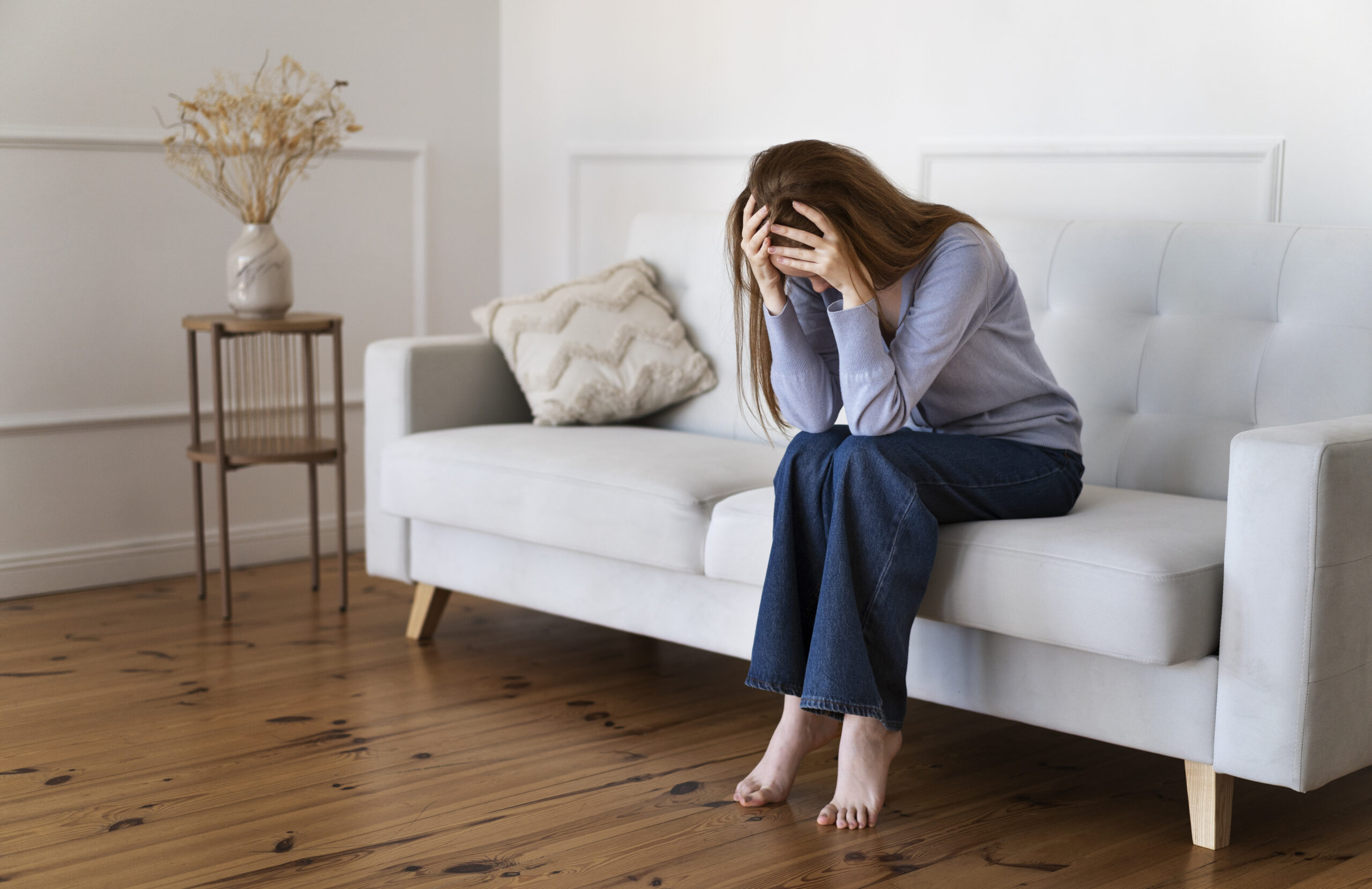
What causes generalized anxiety disorder?
As in the case of many mental ailments and disorders, also as generalized anxiety disorder, the causesare multifactorial and are the result of the interaction of biological influences, psychological and social.
Among the first, attention is paid to the influence of heredityand neurochemical factors. Mental disorders (of various types) occurring in the family may be a predisposition to the emergence of anxiety disorders in subsequent generations. Of course, this does not mean that every case where someone in the family struggled with mental problems will cause the disease to the next generation.
As mentioned at the beginning, each person reacts differently to the events of everyday lifeas well as those occurring irregularly, sometimes once. Therefore, some situations, such as a change of job, change of apartment, pregnancy, experiencing a traumatic event, or verbal, sexual, or physical violence in people more sensitive to stress can cause chronic consequences.
Some somatic diseases can be the cause of anxiety. These can be hormonal diseases, diabetes, asthma, and heart disease.
Addictive substancessuch as alcohol (when taken often, in large quantities, associated with the need to “forget” when experiencing difficult emotions), marijuana, and other drugs, as well as sedatives, can trigger anxiety, especially when the effects of taking off the substance disappear.
Unfortunately, the use of stimulants by people already suffering from an anxiety disorder is also common, to calm the symptoms, numbness, and reduce anxiety. In the long run, such behavior only intensifies and perpetuates the burdensome feeling, introducing the so-called “vicious circle” mechanism.
Certain personality traitsmay predispose to excessive fearfulness. Among them, we mention perfectionism. In this case, fear may evoke, for example, fear of failure. Other characteristics that may cause increased susceptibility to developing an anxiety disorder may be an increased need for control and low self-esteem.
Treatment of generalized anxiety disorder
Effective treatment of generalized anxiety disorder most often includes psychotherapy and pharmacotherapy.
Psychotherapy
The leading therapeutic approaches, in this case, are cognitive-behavioral and psychodynamic therapy. In the first case, the therapy focuses on understanding and reformulating the patient’s fear beliefs and on learning how to deal with fear by using, among others, relaxation training.
Psychodynamic therapy, on the other hand, seeks to reveal and resolve unconscious internal conflicts and to identify and strengthen the patient’s ego strength.
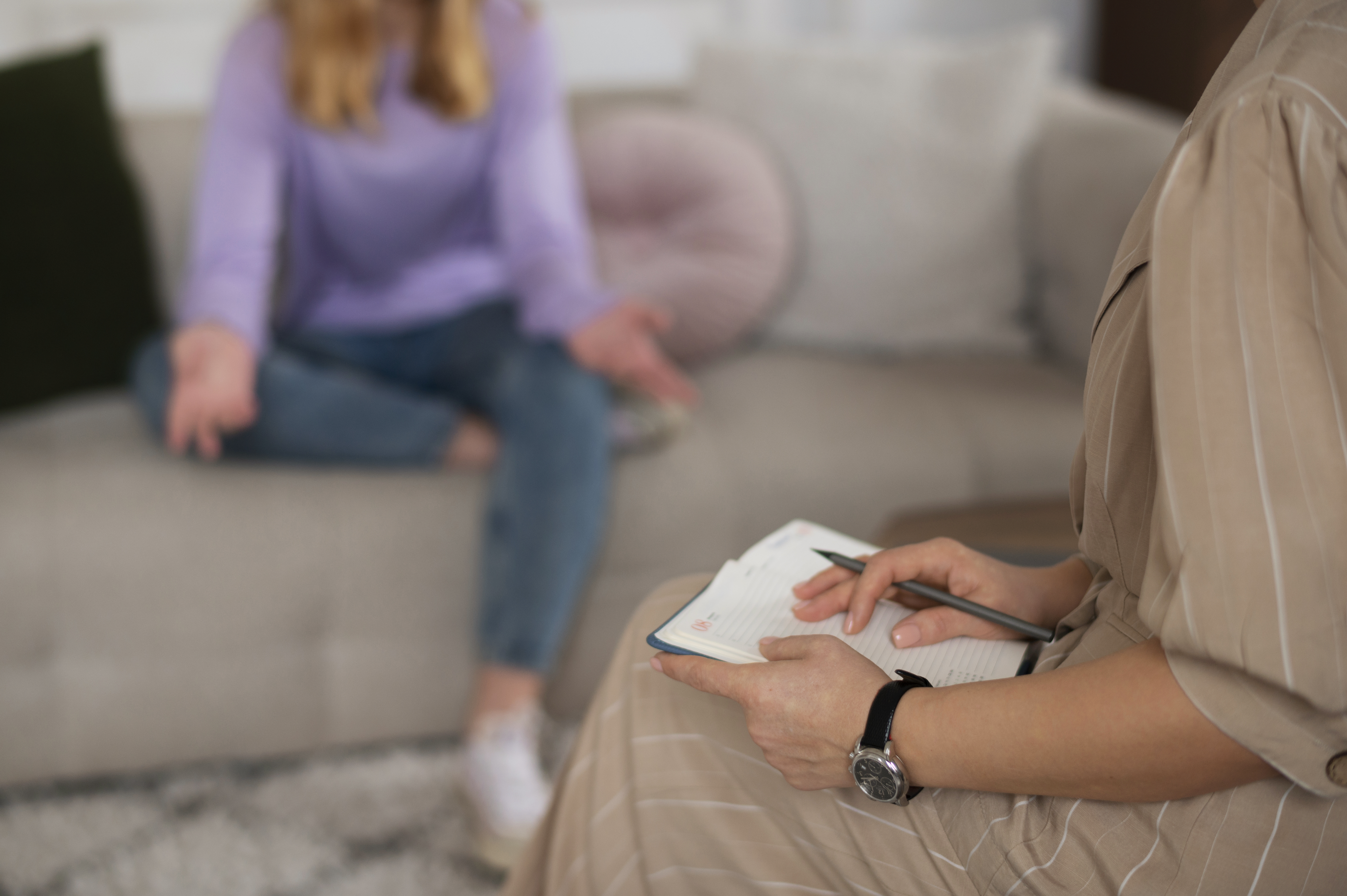
Pharmacotherapy
The most commonly used treatment for the condition are SSRIs. In some cases, temporary use of benzodiazepines are recommended as an additional treatment. But it is worth mentioning, that the drugs from the latter group, can only be taken short-term and preferably intermittently for safety reasons. Otherwise, they lose their effectiveness (the phenomenon of tolerance), side effects start to dominate, and there is a risk of developing an addiction.
Anxiety – how to deal with it?
Stress and anxiety are very unpleasant. Therefore, it is worth implementing ways to mitigate them immediately. Not only will they help with temporary calming down, but in the long run they will positively affect the overall quality of life. So, to effectively deal with the problem, it is good to try the following methods.
Go for a walk or exercising
If you have the opportunity go for a walkor exercise. Choose a nearby park or a green area because communing with nature has a soothing effect on the senses. If you do not want to leave the house, do some yoga. Asanas (or postures) for beginners are simple and help you concentrate and calm your breathing. You can also do gymnastics on a mat to reduce muscle tension.
Bet on calm
The power of calm helps to overcome anxiety and go through difficult, stressful life situations. Even a simple count to 10 helps to calm down. Relaxation techniquesgreatly help build resistance to stress.
Surround yourself with a pleasant fragrance
If you don’t have a favorite, stock up on essential oilswith proven nerve-soothing effects. Perhaps lavender works best for you, or maybe sandalwood. Studies have shown that bergamot, ylang-ylang, and jasmine help reduce stress. Add a few drops of essential oil to an aromatherapy burner or bath. It should help you relax.
Concentrate on your breath
A simple exercise that you can do just about anywhere is slow and mindful breathing. First, while mentally counting to 4, take a deep breath. Then, also counting to 4, exhale. Repeat for 5 minutes. Practicing this exercise also helps stabilize your heart rate.

Learn to manage your time more efficiently
Anxiety may be related to the chaos in your life and poor time management. Therefore, it is good to use methods to facilitate the efficient execution of tasks. For example, make a to-do list for each day. However, not one with several points and the very sight of it is overwhelming – a few points, grouped in terms of urgency, is the optimal solution.
A good way to get rid of the anxiety associated with responsibilities is also to do what is most difficult first. Unfortunately, in practice, we tend to put off activities that we do not want to do. As a consequence, they remain in perspective and are like the proverbial ball and chain.
By changing the order and dealing with the most disliked tasks at the beginning of the day, you don’t have to think about them for the rest of the day, which makes it much easier.
Train yourself to replace negative thoughts with positive ones
An anxiety attack often consists of racing thoughts that are unlikely to be positive. On the contrary, you may see the world in black colors. Replacing deeply rooted negative beliefs with positive ones may take time, but it is a worthwhile effort. Positive thinking is a valuable skill.
Start by making a list of negative thoughts – all that comes to mind, e.g.:
- I’m going to lose my job.
- No one likes me.
- I’m useless.
To make it easier, group them in one column. Next to them, write something positive about yourself – so that every negative thought has its optimistic counterpart. For example:
- I have a job. I am very grateful for it.
- I have a devoted group of friends. I can always count on them.
- I am a valuable person (you can also list all your skills, achievements, and talents).
Read the “positive” list a few times. Repeat it aloud, preferably every day, especially when you feel anxious again. By doing so, you will create a more positive view of yourself and your life.
Create a support group
Contrary to appearances, psychological supportdoes not have to consist only of the fact that you talk about all the negative thoughts and situations that happen to you (or which you are afraid of). Support is also about doing relaxing things together.
A walk in the woods, a bike ride, watching your favorite series, playing board games, looking through old photos, and even a group chat with friends via instant messaging, which will provide us with a lot of laughter and improve our mood – these are good ways to spend time with your loved ones.
You can also join an online group or volunteer.
Get regular and good sleep
Staying up late at night, especially when we have to get up in the morning, results in constant sleepdeprivation and problems. It has further consequences: fatigue, irritability, decreased productivity, and sometimes anxiety.
So how do you improve sleep quality? Of course, you need to establish regular bedtime and wake-up times, even on weekends.
In addition, it is significant to remember that daily exposure to sunlight helps a lot in regulating sleep. On the other hand, at night it is worth taking care of complete darkness in the bedroom. In this simple way, the brain receives a signal when it is time to be active and when to rest. Thanks to this, it releases the sleep hormone, i.e., melatonin, at the right time.
Importantly, before bedtime, it is better to give up electronics and put down the smartphone, and telephone, turn off the TV, and give up any stimulating activities (for example, exercise). Instead, you can turn on relaxing music or read a book.
When a loved one experiences anxiety
Family and friendscan play a significant role in dealing with the anxiety experienced by their loved ones.
If you notice symptoms of anxiety disorders in a loved one – let them know, assure them of your willingness to help, of your readiness to listen carefully without judging. Try to encourage them to seek professional support, and offer help in finding the right specialist.
Nurture healthy habits (sufficient sleep, regular meals, exercise), entertainment, and relaxing activities. Stay in touch with this person, suggest the same to other family members/friends, but do not put too much pressure on contact.
Sources
- Are Fear and Anxiety Truly Distinct?. NIH.
https://www.ncbi.nlm.nih.gov/pmc/articles/PMC9616241/. - Anxiety. APA.
https://www.apa.org/topics/anxiety. - What are Anxiety Disorders?. APA.
https://www.psychiatry.org/patients-families/anxiety-disorders/what-are-anxiety-disorders. - Anxiety Disorders. NIH.
https://www.nimh.nih.gov/health/topics/anxiety-disorders. - Anxiety. NIH.
https://www.ncbi.nlm.nih.gov/books/NBK470361/. - Understanding Anxiety Disorders. NIH.
https://newsinhealth.nih.gov/2016/03/understanding-anxiety-disorders. - Anxiety Disorders and General Medical Conditions: Current Research and Future Directions. NIH. https://www.ncbi.nlm.nih.gov/pmc/articles/PMC6526963/.
- The Diagnosis and Treatment of Anxiety Disorders. NIH. https://www.ncbi.nlm.nih.gov/pmc/articles/PMC6206399/.
- Generalized Anxiety Disorder. NIH.
https://www.ncbi.nlm.nih.gov/books/NBK441870/. - Generalized Anxiety Disorder: When Worry Gets Out of Control. NIH.
https://www.nimh.nih.gov/health/publications/generalized-anxiety-disorder-gad. - Anxious Personality Traits: Perspectives from Basic Emotions and Neurotransmitters. NIH.
https://www.ncbi.nlm.nih.gov/pmc/articles/PMC9496710/. - Anxiety and Substance Use Disorders: A Review. NIH.
https://www.ncbi.nlm.nih.gov/pmc/articles/PMC2904966/. - Treatment of anxiety disorders. NIH.
https://www.ncbi.nlm.nih.gov/pmc/articles/PMC5573566/. - Effects of Exercise and Physical Activity on Anxiety. NIH.
https://www.ncbi.nlm.nih.gov/pmc/articles/PMC3632802/. - Sleep and anxiety: From mechanisms to interventions. NIH.
https://pubmed.ncbi.nlm.nih.gov/34979437/. - Mind and Body Approaches for Stress and Anxiety: What the Science Says. NIH.
https://www.nccih.nih.gov/health/providers/digest/mind-and-body-approaches-for-stress-science. - Essential oils and anxiolytic aromatherapy. NIH.
https://pubmed.ncbi.nlm.nih.gov/19831048/. - How Breath-Control Can Change Your Life: A Systematic Review on Psycho-Physiological Correlates of Slow Breathing. NIH.
https://www.ncbi.nlm.nih.gov/pmc/articles/PMC6137615/. - Effect of Time Management Training on Anxiety, Depression, and Sleep Quality. NIH.
https://www.ncbi.nlm.nih.gov/pmc/articles/PMC6379615/. - Family Support, Self-Rated Health, and Psychological Distress. NIH.
https://www.ncbi.nlm.nih.gov/pmc/articles/PMC406377/. - Family and Friendship Informal Support Networks and Social Anxiety Disorder among African Americans and Black Caribbeans. NIH.
https://www.ncbi.nlm.nih.gov/pmc/articles/PMC4466030/. - The power of positive thinking: Pathological worry is reduced by thought replacement in Generalized Anxiety Disorder. NIH.
https://www.ncbi.nlm.nih.gov/pmc/articles/PMC4760272/.
- Anxiety: What Is, Symptoms, Causes, and Treatment
- What Are Anxiety Disorders?
- Symptoms of generalized anxiety disorder
- What causes generalized anxiety disorder?
- Treatment of generalized anxiety disorder
- Anxiety – how to deal with it?
- Go for a walk or exercising
- Bet on calm
- Surround yourself with a pleasant fragrance
- Concentrate on your breath
- Learn to manage your time more efficiently
- Train yourself to replace negative thoughts with positive ones
- Create a support group
- Get regular and good sleep
- When a loved one experiences anxiety

